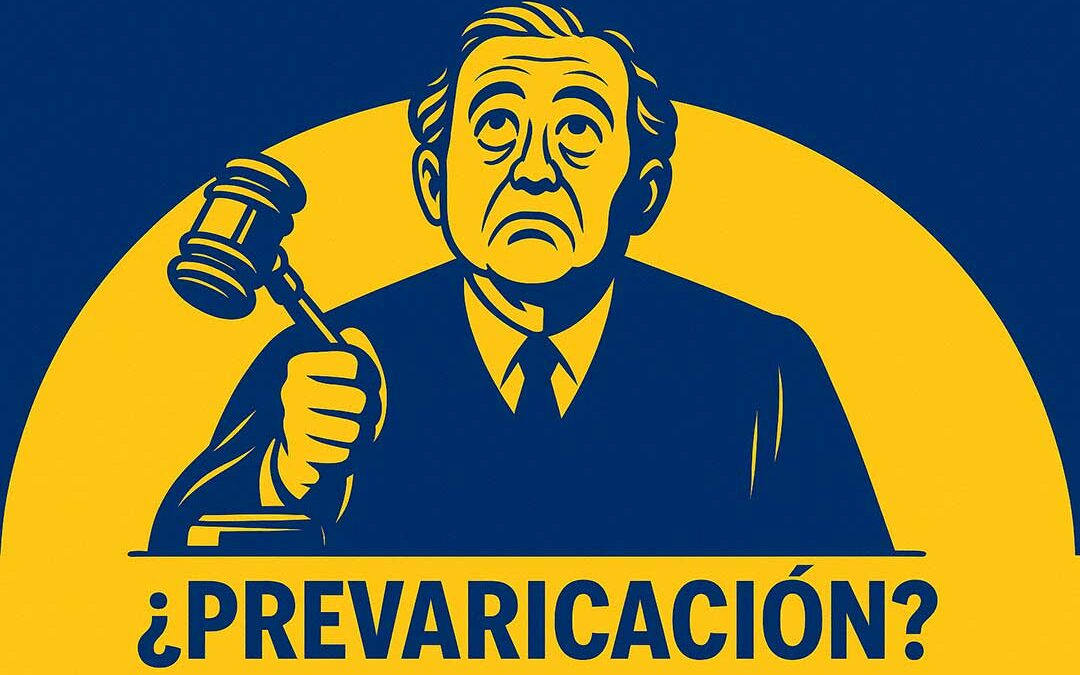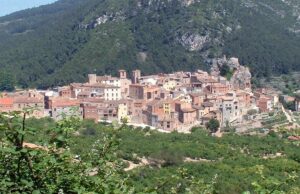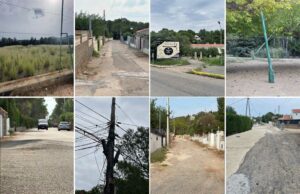When the Pratdip Town Hall Evades Its Duties Toward Planas del Rey
For years, successive mayors of Pratdip– have used the same argument to refuse any intervention in the urbanization of Planas del Rey:
“It’s a private urbanization. I can’t do anything or I’ll go to jail for malfeasance.”
But is this argument actually valid? Does it align with Spanish law? And most importantly, does the status of Planas del Rey really correspond to that of a private urbanization?
Upon closer inspection, there is no legal or moral justification for the Town Hall’s inaction. On the contrary, the facts show that the municipality has, in fact, acknowledged its involvement in the management and structuring of this area.
1. What is malfeasance under Spanish law?
Administrative malfeasance is defined in Article 404 of the Spanish Criminal Code:
“Any public authority or official who, knowingly, issues an arbitrary decision in an administrative matter shall be punished with disqualification from public office for a period of nine to fifteen years.”
This means a public official may not knowingly issue a decision that is unjust or contrary to law.
However, there is no legal barrier preventing a mayor from intervening in an urban zone simply because it is labeled “private,” especially when there is clear legal and material evidence to the contrary.
2. A baseless argument: Planas del Rey is not a private urbanization
Several objective factors contradict the claim that Planas del Rey is a private urbanization:
a) Public property is registered under the Town Hall’s name
The streets, green spaces, and swimming pool of Planas del Rey are registered under the name of Pratdip Town Hall in the official land registry of Falset.
A public entity cannot claim to be uninvolved with an urban area where the roads and shared facilities are in its legal possession.
This fact alone invalidates any claim of “private” status.
b) No document confirms a “private” urbanization status
Neither in the notarial deeds nor in the municipal archives is there any official document designating Planas del Rey as a private or unreceived urbanization.
In legal terms, the absence of such a note in deeds (such as home purchase agreements) means the properties are presumed to be part of the public urban network.
3. Issuance of building permits: implicit recognition of “solar” status
Another key point: since the early 2000s, the Pratdip Town Hall has repeatedly issued building permits in Planas del Rey.
According to Article 11.3 of the Ley del Suelo (Royal Legislative Decree 7/2015):
“A plot may be considered a ‘solar’ if it is suitable for construction by complying with urban planning requirements and having access to basic urban services.”
By issuing building permits, the Town Hall is acknowledging that these plots meet such requirements.
This implies that the area conforms to the municipal urban plan (POU) and cannot be considered as outside the public domain.
4. No street lighting since 2017: a violation of Law 7/1985
Since 2017, residents of Planas del Rey have lived without public street lighting, despite regularly paying municipal taxes (IBI).
This violates Law 7/1985 of April 2, which regulates the obligations of Spanish municipalities.
According to Article 26.1.a, municipalities must guarantee at least:
“Public lighting, waste collection, drinking water supply, sanitation, road maintenance, and access to communication routes.”
Failing to meet these obligations, particularly when dealing with recognized residents and properties within the municipal territory, constitutes a serious administrative neglect.
5. A reversal of logic: who is actually breaking the law?
Instead of protecting citizens and serving the public interest, the Town Hall uses criminal risk as a pretext for its inertia.
But based on the facts:
- Public infrastructure is legally registered in its name.
- It has issued construction permits for land considered “Solar.”
- It collects taxes without providing basic public services.
In this context, the risk of malfeasance does not lie in acting within Planas del Rey, but potentially in refusing to assume obvious legal responsibilities.
6. What recourse do residents have?
Residents of Planas del Rey have several legal options:
- Formally request the official reception of the urbanization and a rehabilitation plan.
- Demand public lighting under Article 26 of Law 7/1985.
- Request access to municipal records via the Transparency Law 19/2013.
- If denied, file an administrative appeal or even initiate legal proceedings for breach of statutory obligations.
- Submit a complaint to the Síndic de Greuges de Catalunya (Catalan Ombudsman).
Conclusion: a refusal with no legal basis
The recurring pretext of malfeasance invoked by successive mayors of Pratdip has no legal grounding and runs counter to basic institutional duties.
Residents of Planas del Rey are fully entitled to demand essential public services such as lighting, maintenance, and official recognition of their neighborhood as part of the municipality.
It is time to end this legal fiction and restore fair, lawful public management.
SOS Planas







